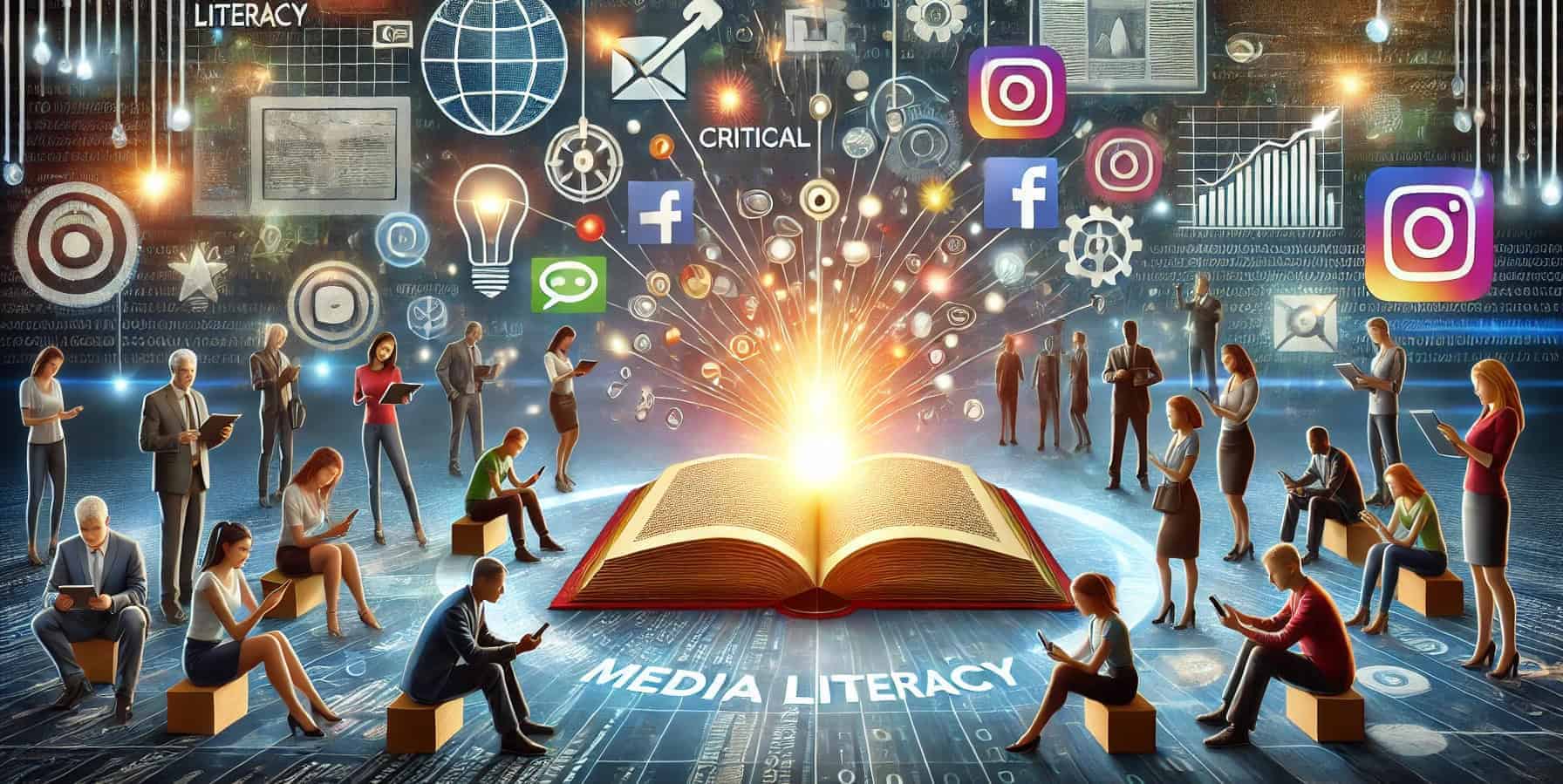Welcome to the final part of our mini-series exploring the importance of media literacy in the UK. Thank you to all the readers who have been in touch to tell us how much they have valued the series.
In this final part of the series you’ll find some useful tips and tools to get you started on your journey to improved media literacy .
As the digital age continues to evolve, so must our approach to media literacy. The rise of artificial intelligence and deepfakes poses new challenges.
Understanding how media can be manipulated
People must understand how technology can manipulate media. This includes recognising altered images, videos, audio recordings – and of course, the written word.
These technologies can make it difficult to trust even seemingly-authentic content. Media literacy in the population must evolve to address these new threats.
It should teach individuals how to identify technological manipulations and assess digital content.
Practical steps toward media literacy
There are several practical steps people can take to improve their media literacy.
First, always check the source of information before sharing it – even more so in a world of manipulated media.
When you share content you are attaching all the trust (and love) people have in you to the information you are sharing. You are in effect saying, “Hey friends/family, you know you can trust me. Well, I’m saying you can trust this.” The more it is shared, the more trust it has attached to it, even if it’s utterly fake.
In a world of uncertainly, how do you do this? A start is looking to reputable outlets that follow ethical journalism standards.
Second, cross-reference information with other credible sources – perhaps with those that you feel have an opposing political stance.
Third, learn how to identify bias and how it might shape the reporting.
These actions can significantly improve your ability to navigate the digital world. In a time when information flows rapidly, media literacy is more important than ever. It provides the tools to critically evaluate content and make informed decisions.
How to learn media literacy?
OnTheWight asked the Public Interest News Foundation (PINF) for their recommendation of organisations that provide courses and training.
PINF suggested the News Literacy Lab and although this appears to be mostly aimed at children and young people, we’re sure there is something we can all learn from the articles, podcasts, videos and courses they recommend.
Key tools for enhancing Media Literacy
- Use browser extensions like NewsGuard or Media Bias/Fact Check to evaluate website credibility.
- Learn to reverse search images using tools like Google Images to verify their origin.
- Information Matters have put together a playlist of several short videos aimed at those who are 55+, providing helpful information about improving your media literacy (if you prefer printed, there is information further down the page on the IM website)
- If you have a subscription to Future Learn, they have a course on Understanding Media: Introduction to Critical Media Literacy
By adopting these strategies, you can strengthen your ability to navigate the digital landscape. This ensures you can remain informed and resistant to dis and misinformation in all forms.
We hope you have enjoyed this mini-series highlighting the importance of media literacy in today’s society and, if you haven’t already, start to adopt its practices.
Read Part One / Part Two | Part Three / Part Four





